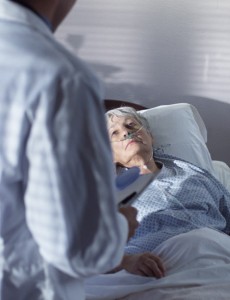Studies show that bed sore prevention is easier than bed sore treatment. Therefore, as New Jersey and Philadelphia, Pennsylvania attorneys specializing in nursing home abuse and neglect cases, of which bed sores are a clear sign, it is important to remind everyone of important tips to prevent them. We have previously discussed the importance of repositioning. Today we are going to focus on another important area that nursing homes must be aware of to help prevent bed sores and/or pressure ulcers from forming. Nursing homes must make sure that they take special care of patients’ skin.
Skincare Supremely Important to Bedsore Prevention
 Both the protection and the monitoring of the patient’s skin is imperative to prevent pressure sores from forming, and to identify their stages early before they have a chance to worsen. One of the important steps nursing homes must be taking is the proper bathing of the skin. Only mild soap and warm water should be used, and he skin should only be gently patted dry. Harsh cleansers are not necessary, nor is harsh rubbing with towels. Talcum Powder should be used on skin that is more likely to retain moisture, and dry skin should be properly moisturized. One of the most important things nursing homes must do is to properly inspect the skin of patients that are most susceptible to acquiring bed sores. These are the patients that are bed ridden or wheel chair bound.
Both the protection and the monitoring of the patient’s skin is imperative to prevent pressure sores from forming, and to identify their stages early before they have a chance to worsen. One of the important steps nursing homes must be taking is the proper bathing of the skin. Only mild soap and warm water should be used, and he skin should only be gently patted dry. Harsh cleansers are not necessary, nor is harsh rubbing with towels. Talcum Powder should be used on skin that is more likely to retain moisture, and dry skin should be properly moisturized. One of the most important things nursing homes must do is to properly inspect the skin of patients that are most susceptible to acquiring bed sores. These are the patients that are bed ridden or wheel chair bound.
Lastly, those patients that are prone to incontinence must be especially monitored. The nursing home must manage the incontinent patients to prevent moisture and bacterial exposure to the skin. To prevent nursing home abuse and neglect, the caregivers may have to frequently schedule assistance with urination and/or diaper changes. Also, the proper use of catheters or rectal tubes may also be needed. All of these tips should be followed by any nursing home to prevent pressure sores from forming or becoming worse. Proper skin care is one of the tools that should be implemented to prevent bed sores. As we always indicate, it is easier to prevent bed sores than treat them, so prevention is the best medicine!
Nursing Home Negligence Lawyers in New Jersey and Philadelphia
If your loved one is a resident at a nursing home or long term care facility and you are worried that the care they are receiving is inadequate or even abusive, contact the Mininno Law Office for a free case evaluation. Even if you simply have questions, you may call at (856) 833-0600 in New Jersey, or (215) 567-2380 in Philadelphia.
Let the nursing home abuse lawyers at the Mininno Law Office help you protect your loved one’s quality of life.
 As New Jersey and Philadelphia nursing home abuse lawyers, we hear from nursing home patients and their families that nursing home staff members do not change the bedding or sheets on a regular basis and, in particular, do not change the nursing home sheets when they become wet.
As New Jersey and Philadelphia nursing home abuse lawyers, we hear from nursing home patients and their families that nursing home staff members do not change the bedding or sheets on a regular basis and, in particular, do not change the nursing home sheets when they become wet.